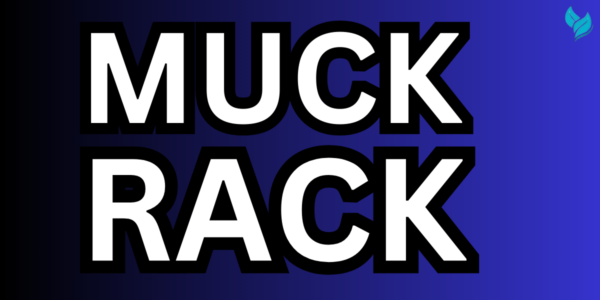Isotonix is a brand of nutritional supplements that have gained popularity due to their unique delivery system, which promises faster absorption and effectiveness. Marketed by Market America, Isotonix products claim to provide optimal nutrient delivery through isotonic solutions, which the company says mimic the body’s natural fluids. It seems you’re mentioning Isotonix and its controversies. Would you like more detailed information on their legal battles, the nature of the controversies, or something else related to the brand?

Background of Isotonix and Market America
Market America operates as a product brokerage and internet marketing company, specializing in a variety of health and wellness products, including the Isotonix line. Market America operates under a multi-level marketing (MLM) model, where independent distributors promote and sell its products, earning commissions on their sales as well as on the sales made by their recruited teams. Critics have scrutinized this business structure over the years, accusing it of being a pyramid scheme.
The core selling point of Isotonix supplements is their isotonic delivery system. According to Market America, the body absorbs Isotonix products faster and more efficiently than regular supplements.
Understanding the Isotonix Lawsuit
The Isotonix lawsuit typically revolves around various allegations, including false advertising, misleading claims, and the MLM model used by Market America. Critics argue that Market America exaggerates the effectiveness of Isotonix supplements, claiming benefits that are not substantiated by rigorous clinical studies. This has led to lawsuits against the company for allegedly misleading consumers.
Moreover, the MLM structure has sparked its own set of legal challenges. Many of these lawsuits claim that Market America’s business model is more focused on recruitment rather than the actual sale of products, which would classify it as a pyramid scheme, a practice that is illegal in many jurisdictions. The plaintiffs in these lawsuits argue that distributors are encouraged to buy large quantities of products upfront, often leading to financial losses when they cannot resell them.
False Advertising Allegations
One of the key components of the Isotonix lawsuit is the allegation of false advertising. Market America advertises Isotonix products as being superior to traditional supplements due to their isotonic form, which they claim allows for better and quicker absorption by the body. However, critics argue that there is insufficient scientific evidence to support these claims.
Several lawsuits allege that the company has misled consumers by overstating the benefits of Isotonix supplements. Some lawsuits argue that the isotonic delivery system has not been proven more effective than traditional pills or capsules, misleading consumers into paying premium prices for a product that may not perform as advertised.
MLM Model and Pyramid Scheme Allegations
Market America’s MLM model has been another focal point of legal scrutiny. Critics and plaintiffs in various lawsuits claim that the company’s focus is primarily on recruiting new distributors rather than selling products to end consumers. This, they argue, makes Market America’s business structure resemble an illegal pyramid scheme, where the majority of profits come from recruitment rather than legitimate product sales.
In these lawsuits, plaintiffs often cite the high financial investments required to become a distributor, with many claiming they were encouraged to purchase large quantities of Isotonix products upfront. When these distributors fail to sell the products or recruit new members, they are left with financial losses. These cases have brought attention to the potential risks associated with MLM models like that of Market America.
Legal Implications and Potential Outcomes
The Isotonix lawsuit holds significant implications not only for Market America but also for the broader supplement and MLM industries. If the lawsuits result in a ruling against the company, it may change how Isotonix products are marketed and sold.
Impact on Consumers
The outcome of the Isotonix lawsuit may affect how companies market supplements and the claims they make about their products. If courts confirm the false advertising allegations, stricter regulations could change how supplement companies promote their products, especially regarding efficacy and absorption claims.
If the pyramid scheme allegations hold, regulators may tighten rules on MLM companies and their recruitment practices.
Market America’s Response
Market America has consistently denied the allegations made in the Isotonix lawsuit and has defended both the efficacy of their products and their MLM business model. The company states that Isotonix supplements scientifically optimize nutrient delivery and claims that their MLM structure enables distributors to build their own businesses.
In response to the pyramid scheme allegations, Market America points out that their compensation plan is based on the sale of products, not merely on recruitment. They emphasize that distributors do not need to purchase large quantities of products upfront. Independent business owners who choose to do so make their own purchasing decisions.

FAQs
Q1: What is the Isotonix lawsuit about?
A: The Isotonix lawsuit involves allegations of false advertising and claims that Market America’s MLM model operates as an illegal pyramid scheme. Plaintiffs argue that the company’s marketing of Isotonix supplements exaggerates their effectiveness and that the MLM structure is more focused on recruitment than product sales.
Q2: Are Isotonix products effective?
A: While Market America claims that Isotonix supplements offer superior absorption and efficacy, critics argue that there is insufficient scientific evidence to support these claims. The ongoing lawsuits highlight this discrepancy.
Q3: Is Market America a pyramid scheme?
A: Market America denies being a pyramid scheme, stating that its compensation plan is based on the sale of products. However, some lawsuits claim that the company’s focus on recruitment over product sales resembles a pyramid scheme.
Q4: How does the Isotonix lawsuit affect consumers?
A: The outcome of the Isotonix lawsuit could lead to more stringent regulations on how supplements are marketed, particularly regarding claims of efficacy, and could influence the regulation of MLM business models.
Q5: What has Market America said about the lawsuit?
A: Market America has denied the allegations and maintains that their products are effective and that their MLM model is legitimate.
Conclusion
The Isotonix lawsuit highlights the legal and ethical complexities surrounding the supplement industry and MLM business models. While Market America continues to defend its products and practices, the ongoing lawsuits may have far-reaching implications for both the company and the broader industry. As consumers, it’s essential to stay informed and critically evaluate the claims made by companies when purchasing supplements or considering MLM opportunities.











